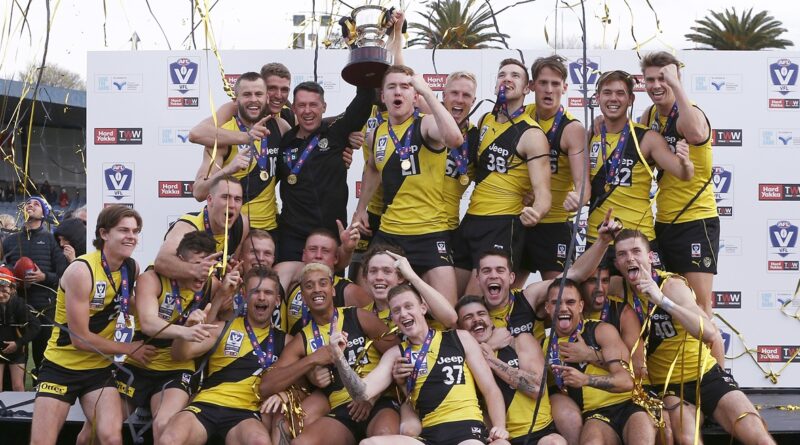AFL Talent Pathway Programs & Second-Tier Football

The AFL has written to all Clubs to advise of the new model for the AFL Talent Pathway Programs and Second-Tier Football in 2021, in response to the ongoing impact of the COVID-19 pandemic
Following a review undertaken over the past few months, the AFL Talent Pathway Programs have been remodelled to further align and simplify the talent pathway calendar, to provide Boys’ and Girls’ Programs with the same opportunities for elite development while also increasing their connection to community football.
The Talent Programs will continue to focus on identifying and developing players from across Australia and best preparing them for AFL and AFLW competition with the age groups for all AFL Talent Pathway Programs, including the NAB League Girls and Boys and the NAB AFL / AFLW National Championships, to be re-focussed from U16 and U18 Levels to U17 and U19 in 2021.
The draft age will remain at 18 for both Toyota AFL and NAB AFLW competitions.
The Next Generation Academies (NGAs) – targeting Indigenous and multicultural players – will be implemented by the AFL Talent Pathway Team with support from AFL Clubs, while Northern Club Academies (Sydney Swans, GWS GIANTS, Brisbane Lions, Gold Coast SUNS) will be provided with greater responsibility and investment.
The revised Second-Tier Model will see the Toyota NEAFL amalgamated into the Hard Yakka / Totally Workwear VFL, leaving the following Second-Tier Leagues nationally – the Victorian Football League (VFL), South Australian National Football League (SANFL), West Australian Football League (WAFL), Tasmanian Football League (TSL) and Northern Territory Football League (NTFL).
AFL Clubs based in Queensland, New South Wales and Victoria will be provided with flexibility to determine the form of their involvement in Second-Tier Football in 2021 with three options available to each of those Clubs:
• Field a standalone team
• Align with an existing Second-Tier Club
• Spread their AFL-listed players across multiple Second-Tier Clubs.
The AFL will continue to work towards ensuring greater alignment across all Second-Tier competitions across the country and also increase the alignment with Talent Programs in each State and Territory.
Second-Tier football in 2021 will be a year of transition that will see the AFL take into consideration the impact of a reduced AFL Soft Cap, the level of AFL Club investment and resource allocation across Men’s and Women’s football programs, any Player CBA revisions and any associated impact on player list sizes.
The model for Second-Tier Women’s Football in Victoria is currently still under review with the AFL to finalise this model in due course.
The AFL also wishes to acknowledge and thank Dean Warren, who after more than 32 years working full-time in the football industry in a number of roles at Club, State and National level, will transition to a role as the Executive Chairman of AFL Queensland later this year in a part-time capacity. In addition to working closely with the Game Development and Talent teams in Queensland, Dean will lend his experience and expertise to specific national Game Development and Talent initiatives.
The AFL acknowledges and thanks the contribution and collaboration from all those that were involved in developing the revised Talent Pathway Program and arrangement for Second-Tier Football in 2021.
• AFL Talent Committee – Alastair Clarkson, Luke Beveridge, Chris Fagan, Damien Hardwick, Stephen Wells, Jason McCartney and Ned Guy
• All 18 AFL Club List Managers, Club GMs Football, Coaches, High Performance staff
• SANFL, WAFL, NEAFL, VFL Club Presidents and/or CEOs
• AFL State Bodies, AFL National and Regional Talent staff
• AFL Players’ Association

